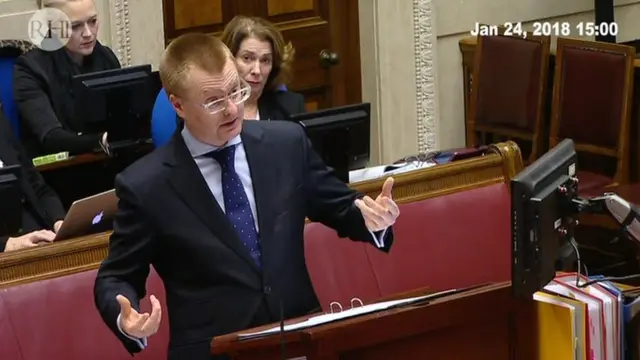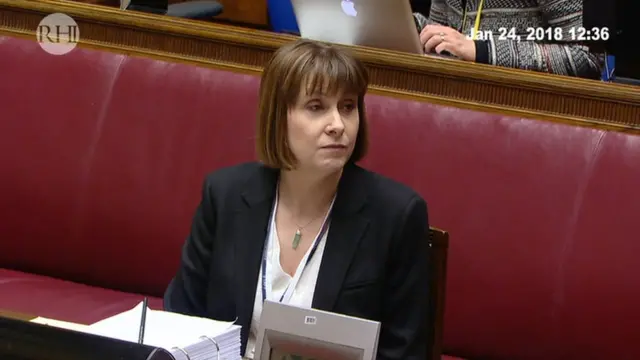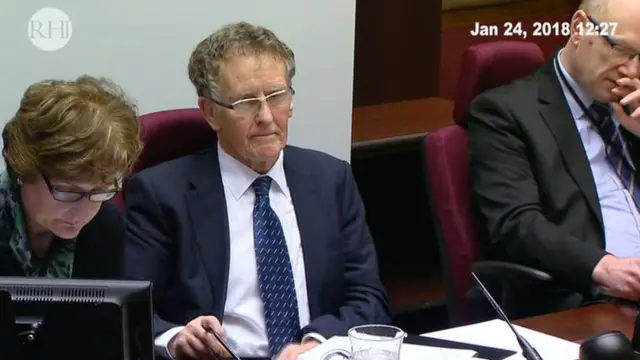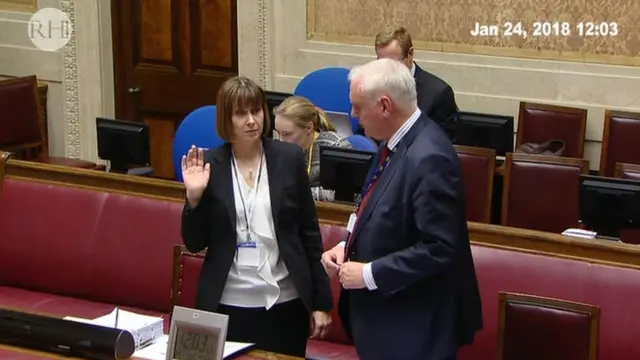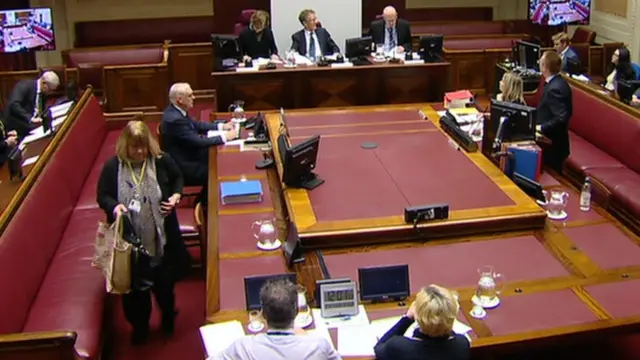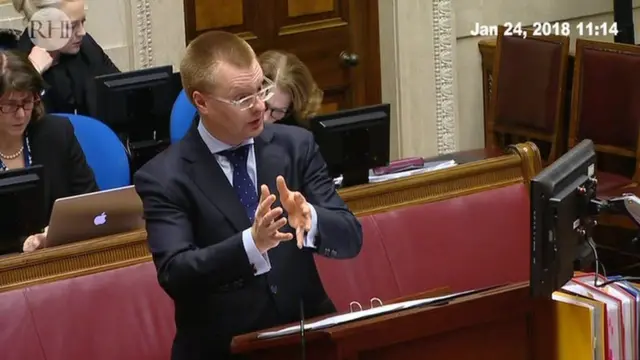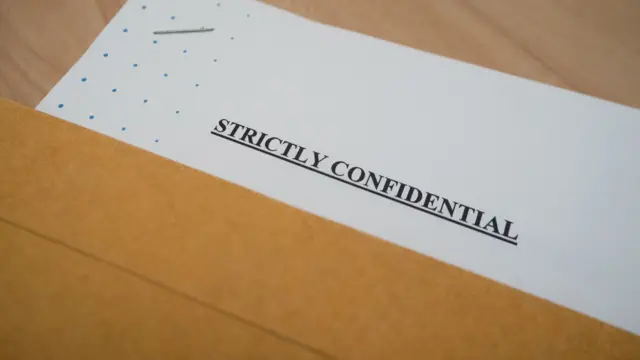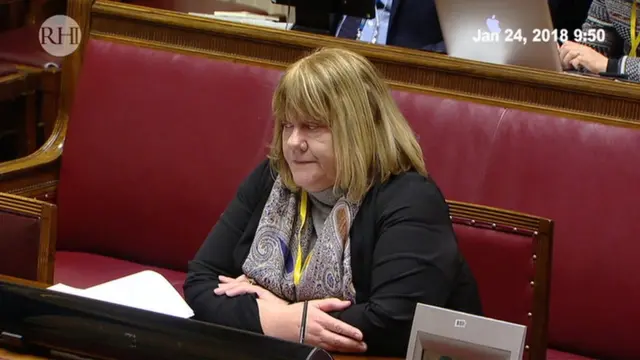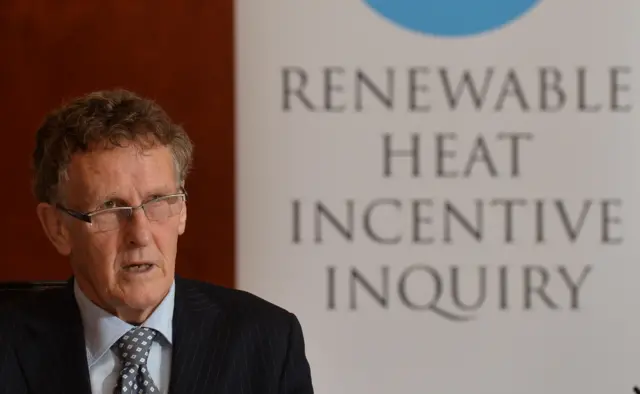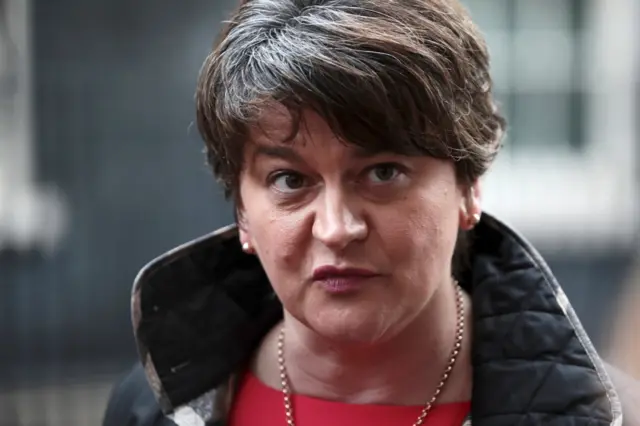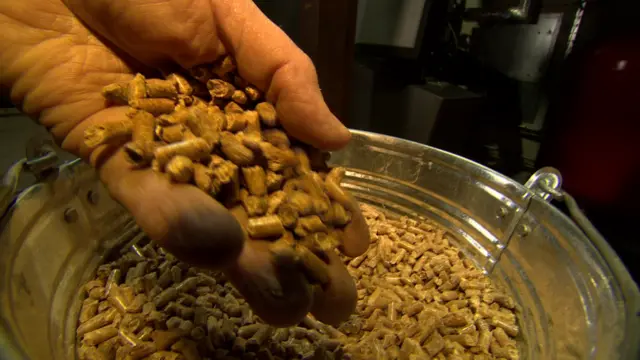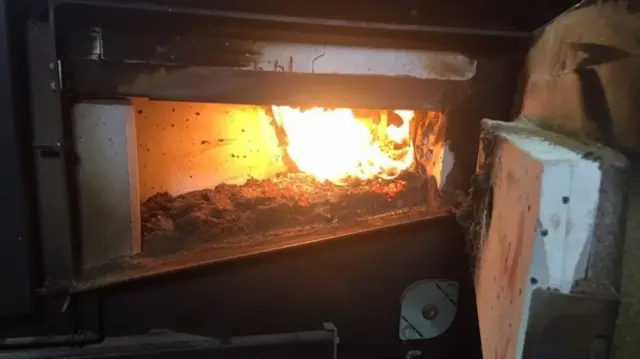That's all for now...published at 16:03 GMT 24 January 2018
Mr Aiken is rather pleased to be finished ahead of time on what has been frankly one of the dullest days of proceedings so far, and the inquiry team may get to leave the building before dark for a change.
Sadly, little or nothing has penetrated our cubbyhole about the great affairs of state happening elsewhere at Stormont.
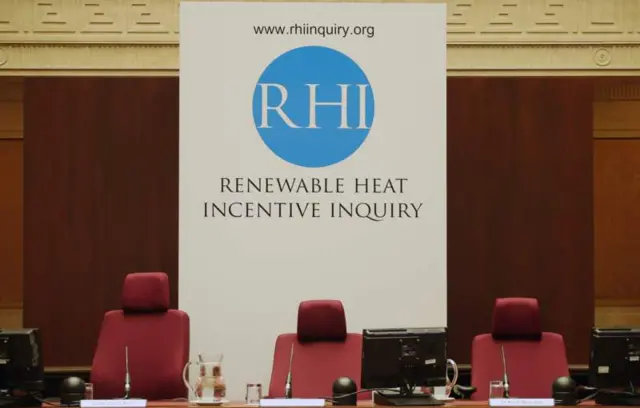 Image source, Press Eye
Image source, Press EyeWe'll be back with more live coverage of the RHI Inquiry at 09:45 tomorrow for an all-day session with DETI economist Sam Connolly - he's been much discussed in previous sessions but this is first appearance in person, so join us then.
Have a very good evening!
